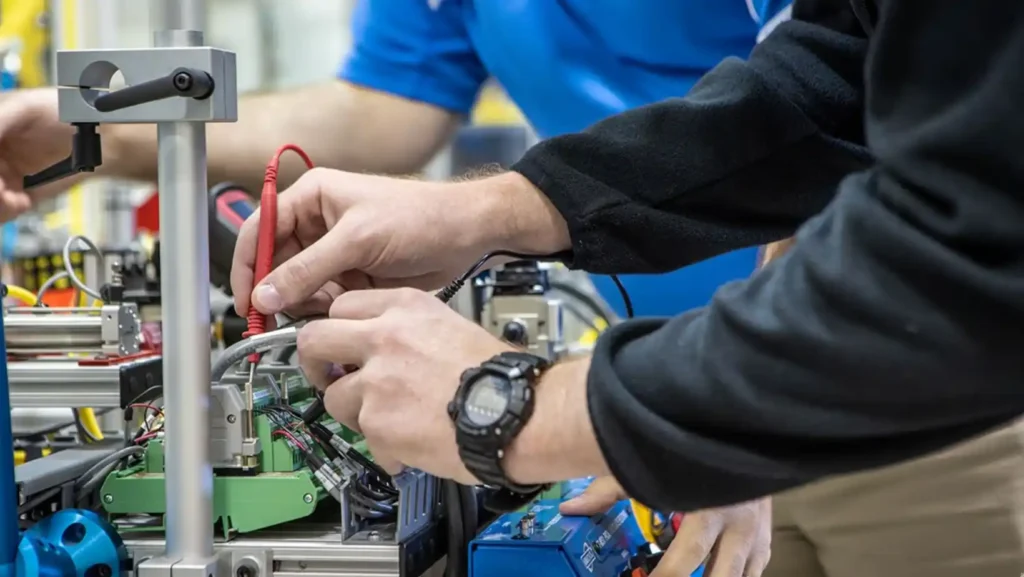Upon successful completion of the ICTQual Level 4 Diploma in Automotive Engineering, graduates will be equipped with the essential knowledge and skills to pursue a variety of career paths within the automotive industry or further their education. The program provides a solid foundation for advanced roles in vehicle design, maintenance, and project management, and offers the opportunity for specialization in cutting-edge automotive technologies.
Here are some potential future progression options for graduates of the ICTQual Level 4 Diploma in Automotive Engineering:
1. Entry into the Automotive Industry
Graduates can enter the workforce in various technical and engineering roles within the automotive industry, such as:
- Automotive Technician/Engineer: Work with vehicle systems, including diagnostics, repairs, and maintenance of modern vehicles. Opportunities are available in automotive repair shops, dealerships, and maintenance facilities.
- Diagnostic Specialist: Specialize in identifying and troubleshooting vehicle faults using advanced diagnostic tools and techniques.
- Vehicle Design Engineer: Contribute to the design and development of vehicles, working on engine performance, safety features, aerodynamics, and new technologies.
- Workshop Manager/Supervisor: Oversee repair and service operations, ensuring efficient workflows, quality control, and adherence to industry standards.
- Electric and Hybrid Vehicle Specialist: Focus on the growing market of electric and hybrid vehicles, working with advanced propulsion systems, battery technologies, and vehicle electrification.
2. Further Study and Specialization
Graduates who wish to advance their qualifications or specialize in specific areas of automotive engineering can consider the following educational pathways:
- ICTQual Level 5 or Level 6 Diplomas: Graduates can further their studies by progressing to higher-level qualifications that specialize in more advanced aspects of automotive engineering, such as vehicle design, autonomous systems, or vehicle manufacturing.
3. Professional Certifications and Industry Recognition
To further enhance career prospects, graduates can pursue various industry-recognized certifications and accreditations, such as:
- Certified Automotive Technician (ATA): Gaining certification through recognized industry bodies like the Institute of the Motor Industry (IMI) can improve job prospects and career progression.
- Electric Vehicle (EV) Specialist Certification: As the demand for electric vehicles grows, certifications in electric vehicle maintenance, battery systems, and charging infrastructure can position graduates as experts in this expanding field.
- Project Management Certification: Graduates interested in management roles can pursue qualifications in project management, such as PRINCE2 or Project Management Professional (PMP), to enhance their skills in leading large-scale automotive projects.
4. Entrepreneurship and Self-Employment
Graduates may choose to start their own automotive-related business or service. With the skills and knowledge gained through the ICTQual Level 4 Diploma, opportunities exist for:
- Automotive Repair Shop Owner: Open a service center that specializes in diagnostics, repairs, and maintenance of various vehicle types.
- Mobile Auto Repair Business: Offer convenient, on-site repair and maintenance services for customers.
- Vehicle Customization or Restoration: Work in custom or classic car restoration, focusing on engine tuning, interior modifications, and vehicle aesthetics.
5. Working in the Research and Development (R&D) Sector
Automotive engineers with a solid foundation in advanced technologies and systems can transition into the research and development sector, contributing to the design and innovation of next-generation vehicles, including autonomous cars, connected vehicles, and alternative fuel systems. Roles in R&D typically include:
- Research Engineer: Focus on the development of new automotive technologies, such as electric drivetrains, smart vehicle systems, and autonomous driving solutions.
- Test Engineer: Conduct testing of new automotive systems, ensuring they meet safety, performance, and regulatory standards before mass production.
6. Opportunities in Emerging Technologies
With rapid advances in autonomous vehicles, artificial intelligence, and green technologies, graduates with a background in automotive engineering are well-positioned to contribute to these emerging sectors. Opportunities include:
- Autonomous Vehicle Systems Engineer: Work on developing and implementing technologies that enable self-driving cars, including sensors, AI algorithms, and vehicle-to-vehicle communication systems.
- Sustainability Specialist: Focus on developing environmentally friendly automotive technologies, such as electric vehicles (EVs), hydrogen fuel cells, and low-emission solutions.

